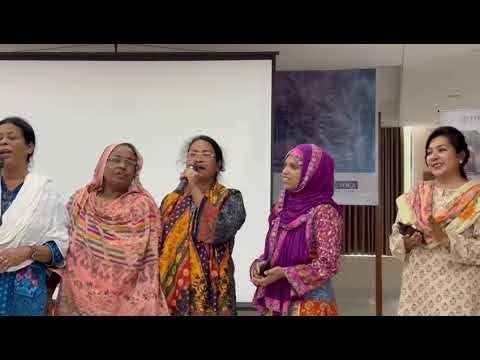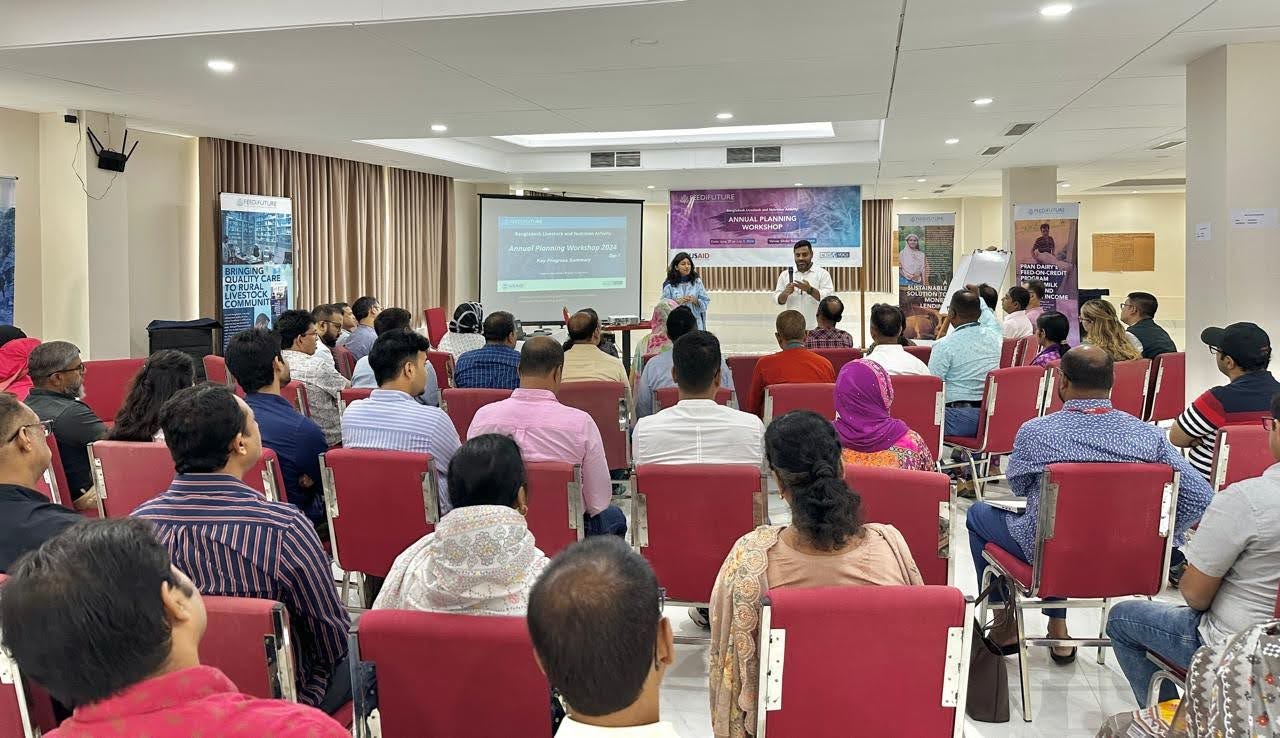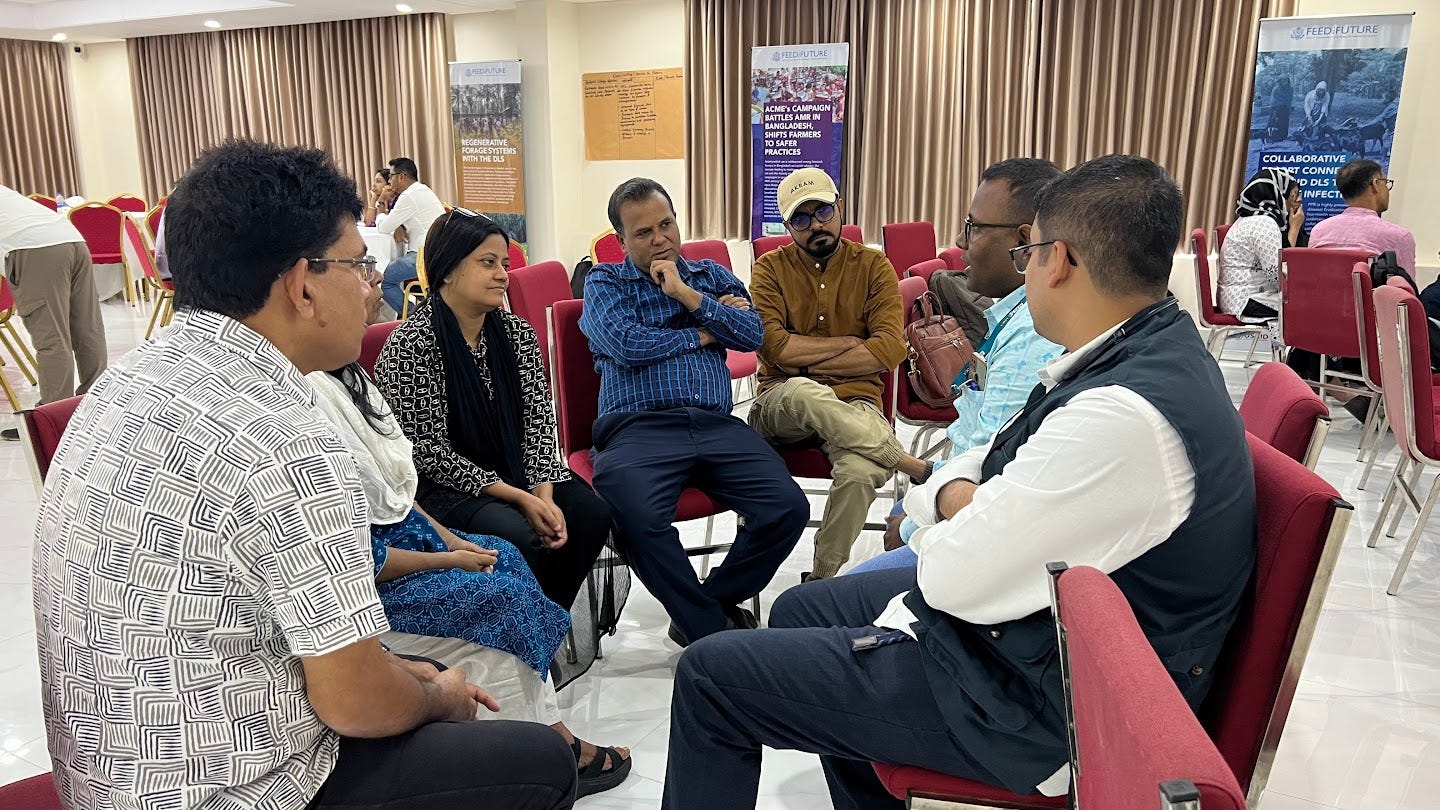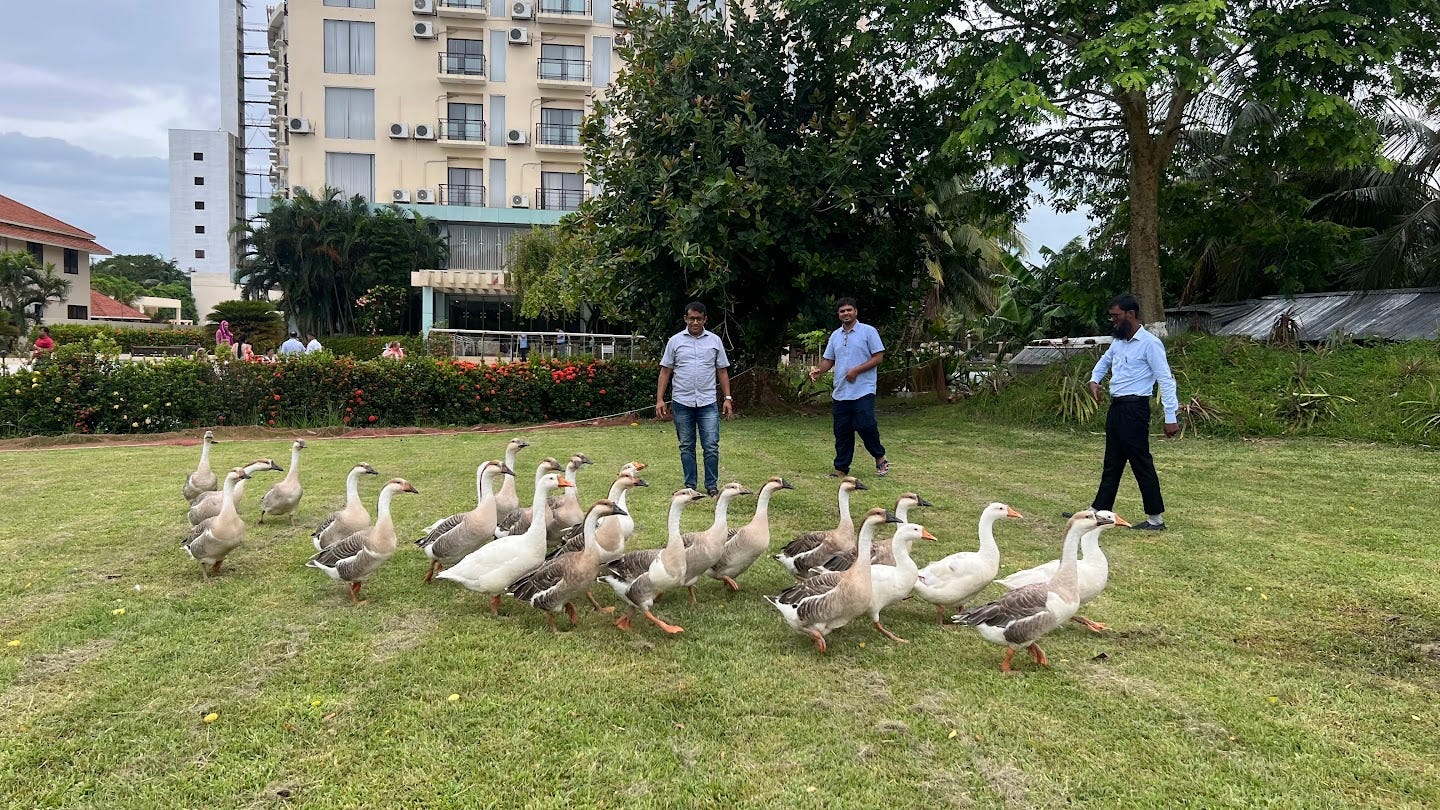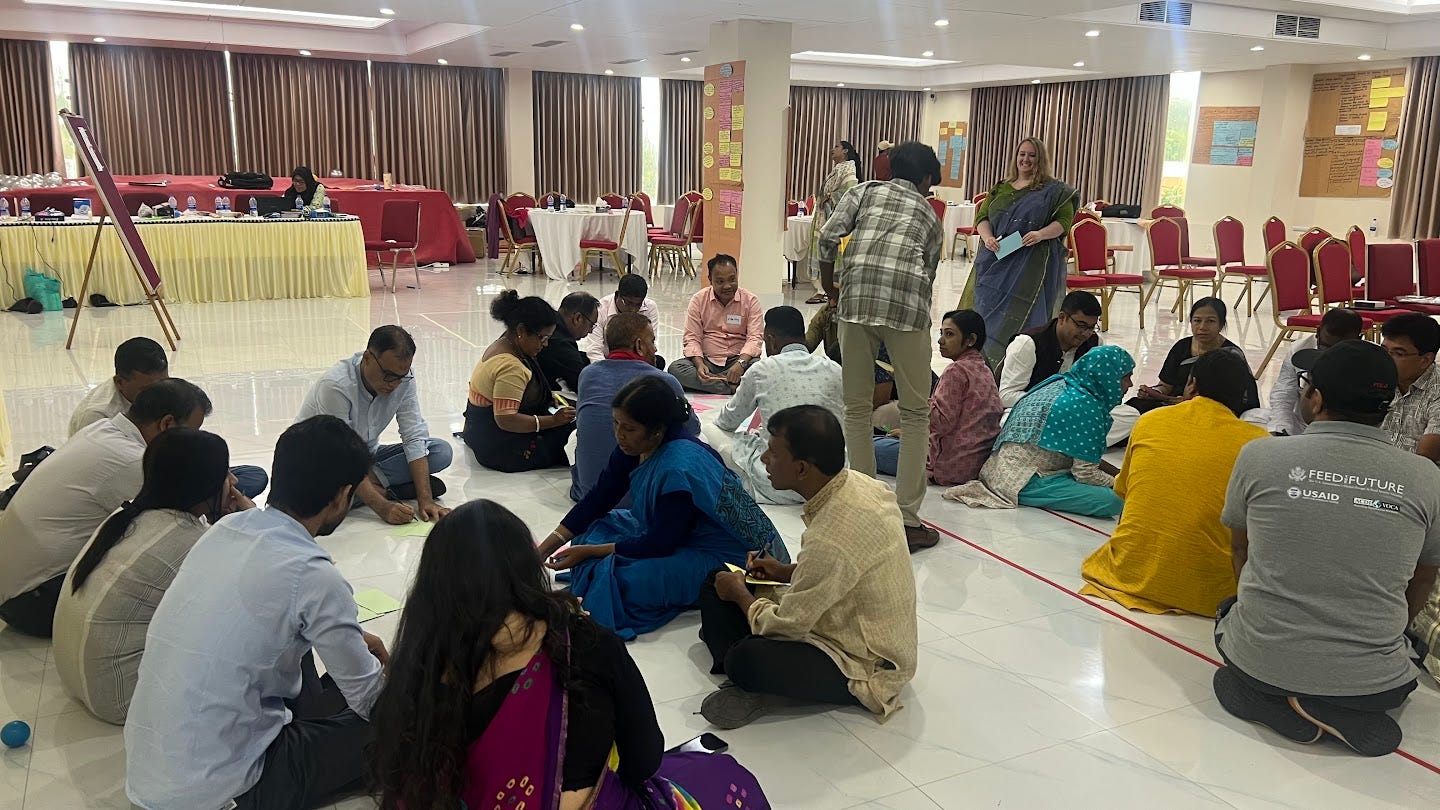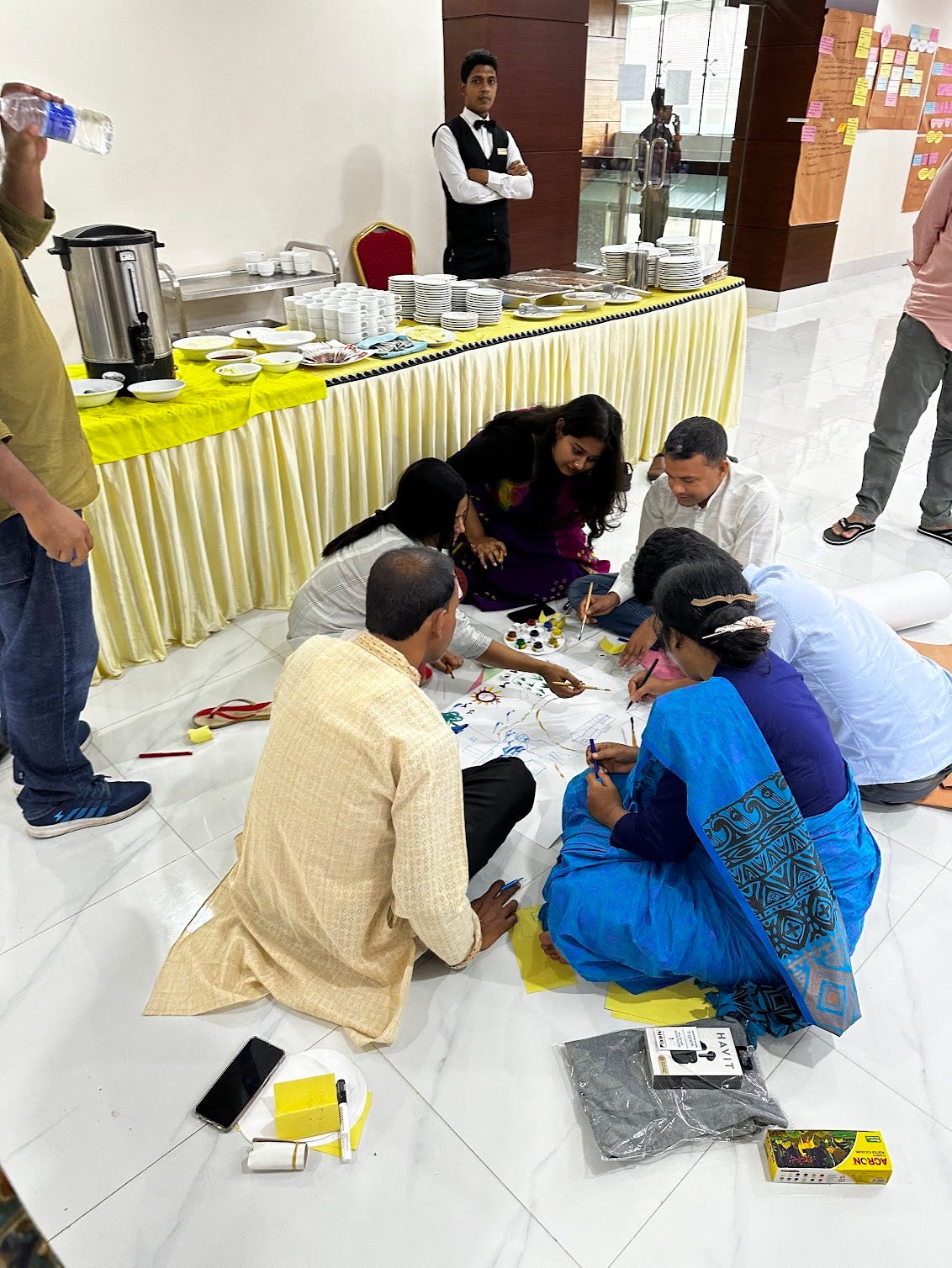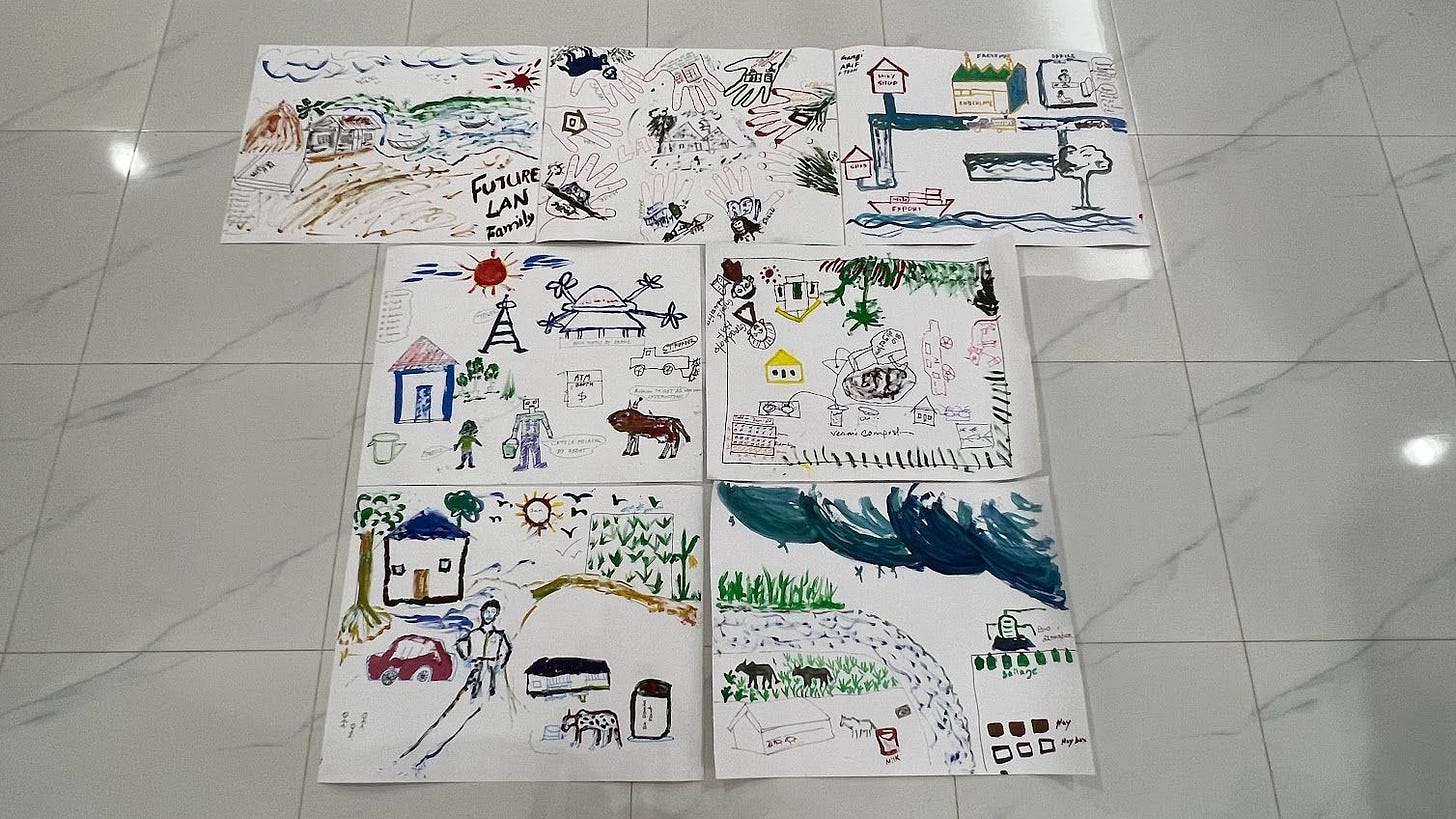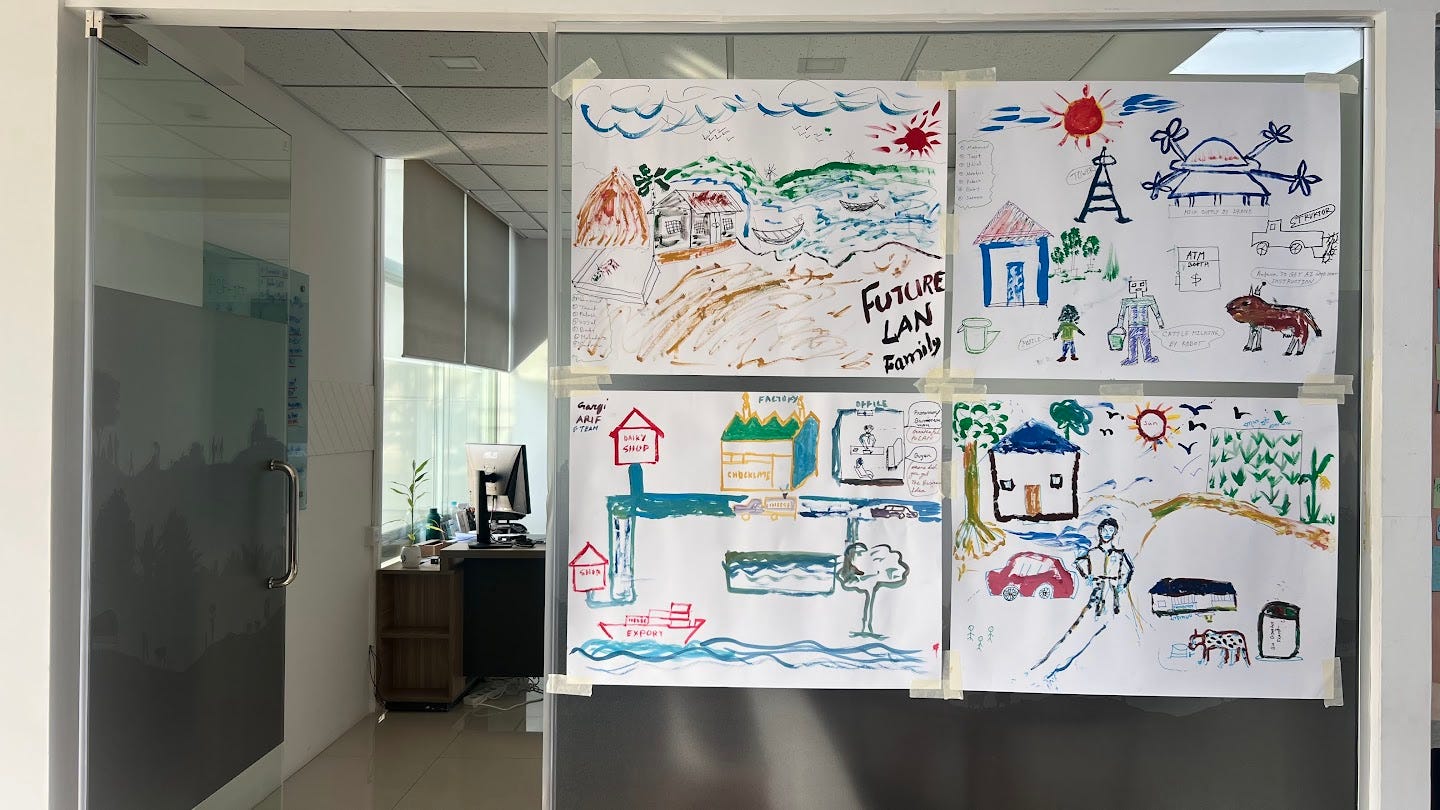A lot has changed since the last time Anna and myself sat down together to record an update. In our last post, we mentioned that we were entering a season of listening. Well, the time between that post and now did involve a lot of listening, but it’s probably appropriate to call what we’ve been up to “active listening.”
It also seems appropriate that the result of this season of listening is that we are now inviting and gathering together a network of facilitators to co-create and host something we are calling “place attunement practices.” It’s been a few forward and side steps to bring us here from the “Curator’s Workshop” we were designing and proposing a couple months back. Soon we will publish a post to share a bit of the backstory on how place attunement practices came to be, how we got here, and why. For now, we can share a story of one of the first place attunement practices to happen on-the-ground, providing a glimpse of what a group of facilitator friends from around the world are bringing to life.
Lamia hosts her first place attunement practice with a bang!
At the end of June, Lamia joined a group of facilitators to host the annual planning workshop for the USAID-funded Feed the Future Bangladesh Livestock and Nutrition Activity, implemented by ACDI/VOCA. Broadly speaking, the Activity is aimed at supporting farmers in moving towards more regenerative agricultural practices across 23 districts in Southwestern Bangladesh. The project presents a huge opportunity for farmers and organizers across a large rivershed, including a delta region, to better see some of the living systems that they co-inhabit and impact. Seeing soil systems and healing soil management practices, regenerative livestock practices, and agricultural impacts on the water cycle are central themes. The three-day workshop aimed to assess past performance and plan activities for the next year. In its fourth year of implementation, some of the goals of the workshop were to shift participants’ perceptions to see more systemically, to increase the depth of participation, and to grow understanding of the “bigger picture.”
Our network of Awakening Lands facilitators joined Lamia in a couple of jam sessions to design what we hoped would be a revelatory workshop. We aimed to create playful exercises that would support the project goals and help participants to attune to each other, to the purpose of the project, to the lands and living systems affected, and to the lands the participants call home. The way that the Awakening Lands (AL) facilitator network has so far been designing place attunement practices has been by adapting what we see as 4 fundamental place attunement practices to the context of an on-the-ground workshop. The following story shares a bit about each practice and how it all came together for the workshop in Bangladesh. Lamia clearly facilitated it with some big-time heart and skill!
Social (prosocial) Practice
The social practice is not only about creating a setting and dynamic where participants are open to and deeply listening to one another, but also listening closely for each other’s values, how others perceive the world, and new ways this opens us up to each other and ourselves.
On the first day at the beginning of the workshop, the participants were divided into small groups of 5 or 6 to practice reflective/deep listening. The prompt was to share stories of places they feel deeply connected to. We wanted to encourage people to break out of their shells, break rigid mindsets, and build connections.
This practice provided the participants with a chance to connect and learn more about their colleagues through their stories and connections to places. Some talked about their hometown, some talked about their school, and some talked about their vacation spot. During the whole group debrief, the participants discussed the shared values that brought them all together to this work, which align with the organization’s values.
Eco Practice
The Eco Practice is a lot about bearing witness to the living systems most relevant to us and practicing attuning to them. For this project, some of the living systems highlighted are prosocial and personal dynamics within the team itself, relationships with farmers, farmer livelihoods, local and regional water cycles, living soil systems, and regional-scale ecological interconnections. The project itself can be viewed as a living system too, which invites us to consider how to bring it more to life.
Lamia facilitated an activity where groups were invited to think and feel like living systems. They were then invited to consider what each living system would have to say if it had a voice. Groups represented living systems, including soil, water, birds, plants, and animals. The participants went outdoors where they had the chance to feel the presence of the living systems and use their creativity to tell a story as the voice of that living system. The groups came up with poems, songs, skits, and more!
The prompt helped foster attunement with relevant living systems, resulting in a deeper sense of personal connection, relationship, and devotion to the project.
Revelatory/Spiritual Practice
For this practice, we reflect on what individual and group growth towards higher potentials looks and feels like.
The practice started with a gratitude exercise where each person wrote a note about something they’re grateful for. Then we held a forgiveness exercise where each person wrote something that they wanted to forgive in themselves. The last exercise had each person writing about a time when a colleague changed their whole day with an act of kindness.
After that, the participants discussed in groups what was giving them energy and what was draining their energy. This was also a great way for the participants to share feedback with the organization on where it should be putting more energy so that participants can work with their full energy and collectively grow towards their higher potential.
The Gift that Connects and Accumulates Voices of Place
The three-day workshop ended with participants creating a gift for the people the project works for. The prompt for the gift was: In 15 or 20 years, what are the recipients/farmers grateful for if this project is successful? The participants, working in groups, were given paper, colors, and brushes to paint what they felt and envisioned. As they painted, they reflected on what an opportunity the project is and what needs to be done to bring about better futures for everyone.
The participants were inspired. Several days after the workshop it was clear that their creative juices are still flowing as they continue to build on the gift. They’re looking for ways to do more storytelling that includes the voices of the recipients of the project - the farmers and the land.
Feedback from participants
“When Lamia talked about the 'Awakening Land' concept, it resonated so well with our regenerative livestock work. We discussed if the sessions could be adjusted for our staff who require the right mindset to lead many of the project interventions on the ground. Staff found them inspiring and can potentially transform their thought process in their job. Session outcomes were great. Staff were thoughtfully happy and learned new ways of telling their stories.”- Muhammad Nurul Amin Siddiquee, Chief of Party
“This allowed us to step away from the humdrum of project activities and explore why we work, our reason for choosing this particular vocation. It allowed us to examine closely our relationship with coworkers and our line of work. Most importantly, it allowed us to reflect on what is important to us within and well beyond work. I came back from the sessions with some answers and more questions, which I hope to explore in depth soon.” - Syed Shadman Haque, Private Sector Engagement Specialist
"I greatly enjoyed and appreciated these sessions during our annual project work planning. The discussion prompts and activities sparked interesting conversations that helped me to learn more about my colleagues on a personal level, which in turn will allow me to better understand and support them in a work capacity as well.
I also enjoyed the creativity with which each person and group approached the activities related to nature and the world around us. Their songs, paintings, and spoken words showed me much about how each person engages with the world and with our work, and I am grateful for the opportunity these trainings provided for me to see and hear that."- Becky Twaalfhoven, Project Associate
Where does the story on-the-ground go next?
The practices from the workshop are being adopted by some of the project organizers! The staff members are incorporating them into some of their regular interactions. They will become part of the CLA (Collaborating, Learning, and Adapting) approach of the project, which promotes an open learning culture to improve development effectiveness.
The staff members are inspired to start an ongoing and artful storytelling campaign where they will incorporate the voices of the farmers throughout the year. The stories will be more community-led where farmers are more closely listened to and the stories are co-created with them. The organization is planning to host workshops to further empower the staff to tell stories of regeneration, the farmers, and the land.
A team of facilitators is growing at Awakening Lands. If this inspires you and you’d like to support, you can subscribe by hitting the button below and select an amount to donate. You can also subscribe for free, we don’t want money to limit anyone from participating.
If you’d like to make a one-time donation, you can do so here.
Perhaps the best way you could support us is by sharing this with friends who you feel might be aligned and also inspired.
Many thanks to Kula Applied Research Institute for growing with us in collaboration and friendship.

